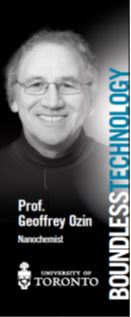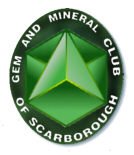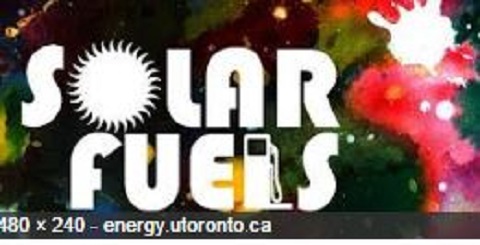Can Minerals Solve Climate Change ? Our April Meeting
Geoffrey A Ozin
Solar Fuels Cluster, Chemistry Department, University of Toronto, EMail:gozin@chem.utoronto.ca, Web Sites: www.nanowizard.info, www.solarfuels.utoronto.ca
The concentration of CO2 in our atmosphere has now risen from 290 ppm  at the beginning of the industrial revolution to 406 ppm today. We are now confronted with the challenge of how best to curb this increase and meet the CO2 reduction target of the 2015 Paris agreement. Two main strategies have been proposed in the Paris agreement to achieve this target. The first underscores mitigation of greenhouse gas emissions, the second stresses reduction of fossil fuel consumption. In this lecture I will discuss a third paradigm, which instead focuses attention on converting CO2 to value-added chemicals and fuels. Specifically, I will present our recent work on heterogeneous catalytic nanomaterialsthat can enable the transformation of gaseous CO2 to value-added products, powered by both the heat and light of the sun. If successful this strategy could help enable energy security, environment protection and climate control.This vision of an energy transition to an economy founded upon CO2 as a chemical feedstock, considered as an asset rather than a liability, presents a credible science and engineering paradigm, with a calculable cost, assessable risk and definable benefit, over a quantifiable development time period.
at the beginning of the industrial revolution to 406 ppm today. We are now confronted with the challenge of how best to curb this increase and meet the CO2 reduction target of the 2015 Paris agreement. Two main strategies have been proposed in the Paris agreement to achieve this target. The first underscores mitigation of greenhouse gas emissions, the second stresses reduction of fossil fuel consumption. In this lecture I will discuss a third paradigm, which instead focuses attention on converting CO2 to value-added chemicals and fuels. Specifically, I will present our recent work on heterogeneous catalytic nanomaterialsthat can enable the transformation of gaseous CO2 to value-added products, powered by both the heat and light of the sun. If successful this strategy could help enable energy security, environment protection and climate control.This vision of an energy transition to an economy founded upon CO2 as a chemical feedstock, considered as an asset rather than a liability, presents a credible science and engineering paradigm, with a calculable cost, assessable risk and definable benefit, over a quantifiable development time period.
Brief Biography:Geoffrey Ozin studied at King’s College London and Oriel College Oxford University, before completing an ICI Postdoctoral Fellowship at Southampton University. Currently he is the Tier 1 Canada Research Chair in Materials Chemistry and Nanochemistry and Distinguished University Professor at the University of Toronto, where he currently spearheads the activities of the Solar Fuels Cluster. Internationally he has been Global Chair at the University of Bath, Distinguished Research Professor at Karlsruhe Institute of Technology, Professorial Fellow at The Royal Institution Great Britain and University College London University, Alexander von Humboldt Fellow at the Max Planck Institute for Colloid and Surface Science, Sherman-Fairchild Scholar at Caltech and 3M Research Fellow, Minneapolis-St Paul. Recently he has been the recipient of the World Technology Award 2016, RSC Centenary Prize 2015 and the Albert Einstein Prize 2014 for his work in defining, enabling and popularising a chemical approach to nanomaterials for innovative nanotechnology in advanced materials and biomedical science.
The April meeting will be held at the Knox United Church meeting on Wednesday April 5th, 2569 Midland Ave , Scarborough, beginning at 8:00 pm.
Directions to our Meetings
-
Where:Knox United Church Hall
2569 Midland Avenue
Toronto (Scarborough) M1S 1R3
north-east corner of Midland and Sheppard Avenue- We meet in the Church Hall which is the building north of KnoxUnitedChurch.
- To get to the Hall: When driving north on Midland just past Sheppard, you will pass the church which is on the corner. Then keep you eye out for a small laneway that runs south of the Hall. This leads to the parking lot behind (east) of the Hall.
If you miss the laneway, keep going till you hit a small street on your right (east) called Rural Ave. Turn right (east) and look for a driveway into the Church Hall parking lot. - The door to the Hall is visible from the parking lot. The door is propped open for the meetings. Come in the door & walk up a half a flight of stair into the hall.
For information on our meetings email us

